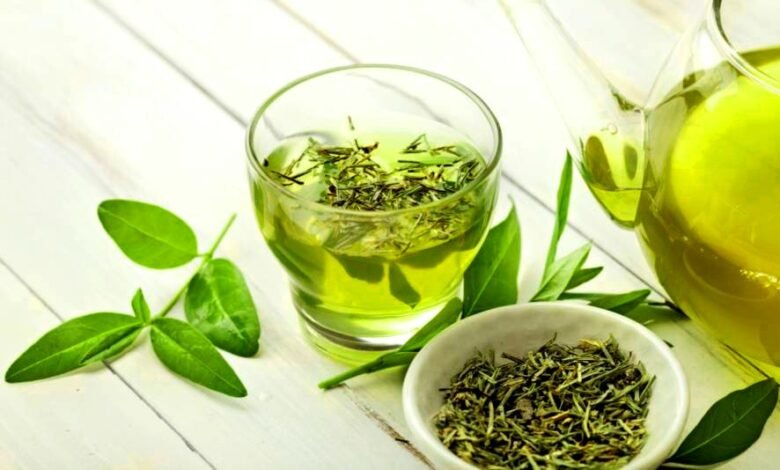The Benefits of Green Tea: Unveiling Nature’s Elixir

Discover the exceptional advantages of green tea in “The Benefits of Green Tea: Unveiling Nature’s Elixir.” Explore this captivating guide and delve into the natural elixir that is green tea, unlocking its extraordinary potential to enhance health and well-being. From boosting metabolism and promoting weight loss to fortifying the immune system and supporting brain function, this comprehensive resource illuminates the myriad benefits of green tea. Immerse yourself in the enchanting world of green tea and uncover the secrets behind its reputation as nature’s elixir for a vibrant and rejuvenated life.
Green tea, often regarded as nature’s elixir, has been consumed and cherished for centuries due to its numerous health benefits. With its origins in China, green tea has gained worldwide popularity for its refreshing taste and remarkable health properties. Packed with antioxidants, vitamins, and minerals, green tea offers a range of advantages, from promoting weight loss to supporting a healthy heart. This article explores the enticing benefits of green tea, revealing why it deserves a prominent place in your daily routine
Read More: Aloe Vera: A Natural Remedy for Acne
What is Green Tea?
Green tea is a type of tea that is made from unoxidized leaves and buds of the Camellia sinensis plant. Unlike black tea, which undergoes fermentation and oxidation, green tea retains its natural green color and freshness. The minimal processing involved in its production helps preserve the beneficial compounds and antioxidants present in the leaves, making it a potent and healthful drink.
The History of Green Tea
Green tea has a rich history that can be traced back over 4,000 years to ancient China. It is believed to have been discovered by the legendary Chinese emperor, Shennong, who is also known as the “Divine Farmer.” The story goes that a few tea leaves accidentally fell into a pot of boiling water, creating a fragrant brew. Recognizing the delightful taste and energizing effects, green tea soon became an integral part of Chinese culture and traditional medicine.
Green Tea Varieties
Green tea comes in various forms and flavors, each offering its own unique characteristics. Some popular green tea varieties include:
- Sencha: The most widely consumed green tea in Japan, known for its grassy and slightly sweet taste.
- Matcha: A finely ground powdered green tea used in traditional Japanese tea ceremonies, offering a vibrant green color and intense flavor.
- Dragon Well: Also known as Longjing tea, it hails from China and is known for its smooth, nutty taste.
- Gunpowder: Originating from China, this tea has tightly rolled leaves that unfurl during brewing, resulting in a full-bodied and slightly smoky flavor.
Nutritional Composition of Green Tea
Green tea is a treasure trove of essential nutrients that contribute to its health benefits. It contains polyphenols, particularly catechins, which are powerful antioxidants known for their protective effects against oxidative stress. Additionally, green tea is a source of vitamins such as vitamins C, vitamin E, and B vitamins, as well as minerals like potassium, magnesium, and fluoride.
Antioxidant Power of Green Tea
The high concentration of antioxidants in green tea plays a vital role in combating free radicals and protecting the body against cellular damage. Epigallocatechin gallate (EGCG), the most abundant catechin in green tea, is renowned for its potent antioxidant properties. These antioxidants help neutralize harmful molecules, reduce inflammation, and promote overall well-being.
Health Benefits of Green Tea
Boosts Metabolism and Aids in Weight Loss
Green tea has been widely studied for its potential to boost metabolism and aid in weight loss. The combination of caffeine and catechins in green tea has been shown to increase thermogenesis and fat oxidation, thereby promoting calorie expenditure and assisting in weight management.
Enhances Brain Function and Mental Alertness

The caffeine content in green tea can provide a natural and gentle boost to brain function. It improves focus, alertness, and cognitive performance. Additionally, the amino acid L-theanine found in green tea has been associated with increased relaxation and a reduction in anxiety.
Reduces the Risk of Heart Disease
Regular consumption of green tea has been linked to a reduced risk of heart disease. The antioxidants in green tea help prevent the oxidation of LDL cholesterol, reduce inflammation, improve blood vessel function, and lower blood pressure levels, all of which contribute to maintaining a healthy cardiovascular system.
Supports a Healthy Immune System
The potent antioxidants in green tea, particularly EGCG, play a significant role in supporting a healthy immune system. They help protect against pathogens and strengthen the body’s defense mechanisms, reducing the risk of infections and promoting overall immune function.
Promotes Healthy Skin
Green tea contains polyphenols and catechins that possess anti-inflammatory and antioxidant properties. These compounds help protect the skin from damage caused by UV radiation, reduce the signs of aging, improve skin elasticity, and promote a healthy complexion.
May Help Prevent Cancer
The antioxidant-rich nature of green tea has led to extensive research on its potential anti-cancer properties. While further studies are needed, preliminary research suggests that green tea may help inhibit the growth of cancer cells and reduce the risk of certain types of cancer, including breast, prostate, and colorectal cancer.
Improves Oral Health
The catechins found in green tea possess antimicrobial properties that can help prevent oral infections, reduce bad breath, and inhibit the growth of bacteria responsible for dental plaque. Regular consumption of green tea may contribute to improved oral health and a lower risk of gum disease.
Assists in Digestion
Green tea has been used for centuries to aid digestion. It stimulates the production of digestive enzymes, enhances gut health, and may help alleviate digestive disorders such as bloating and constipation.
Supports Bone Health
Some studies suggest that the compounds in green tea may help improve bone mineral density and reduce the risk of osteoporosis. The polyphenols in green tea have been shown to have a protective effect on bone health, promoting stronger bones and reducing the risk of fractures.
Reduces the Risk of Type 2 Diabetes
Green tea consumption has been associated with a lower risk of developing type 2 diabetes. The antioxidants in green tea help regulate blood sugar levels, improve insulin sensitivity, and reduce insulin resistance, all of which contribute to better blood glucose control.
Aids in Stress Reduction
The combination of L-theanine and caffeine in green tea can have a calming effect on the mind and help reduce stress. L-theanine promotes relaxation without drowsiness, while caffeine provides a mild energy boost and enhances mood.
Enhances Exercise Performance
Green tea extract has been studied for its potential to enhance exercise performance. It can increase fat oxidation, improve endurance, and delay fatigue, making it a popular supplement among athletes and fitness enthusiasts.
Supports Longevity and Aging Gracefully
The powerful antioxidants present in green tea may contribute to longevity and healthy aging. By neutralizing free radicals and reducing oxidative stress, green tea helps protect cells and tissues from damage, supporting overall vitality and well-being.
How to Prepare and Enjoy Green Tea
To prepare a delightful cup of green tea, follow these simple steps:
- Boil fresh, filtered water and allow it to cool for a minute or two.
- Add one teaspoon of loose green tea leaves or one tea bag per cup of water.
- Pour the hot water over the tea leaves and let it steep for 2-3 minutes for a mild flavor or up to 5 minutes for a stronger taste.
- Strain the tea or remove the tea bag.
- Enjoy your hot green tea as it is or add a squeeze of lemon, a dash of honey, or a sprig of mint for extra flavor.
Green Tea and Caffeine

Green tea contains caffeine, although the amount may vary depending on the type of tea and brewing method. On average, an 8-ounce cup of green tea contains around 20-40 milligrams of caffeine, significantly less than a cup of coffee. This moderate caffeine content provides a gentle energy boost without the jittery side effects often associated with higher caffeine consumption.
Green Tea vs. Other Types of Tea
While all true teas come from the same plant, Camellia sinensis, they undergo different processing methods, leading to variations in flavor, color, and health benefits. Green tea, with its minimal oxidation, retains more antioxidants compared to other types of tea. Black tea, for example, is fully oxidized and has a stronger flavor profile. White tea undergoes minimal processing, similar to green tea, but it is made from young leaves and buds, resulting in a milder taste.
Possible Side Effects and Precautions
Although green tea is generally safe for consumption, some individuals may experience side effects or have specific considerations. These include:
- Caffeine Sensitivity: People sensitive to caffeine may experience sleep disturbances, anxiety, or an increased heart rate. Moderation is key.
- Iron Absorption: Green tea may inhibit the absorption of non-heme iron from plant-based foods. If you have iron deficiency anemia, it’s advisable to consume green tea between meals.
- Medication Interactions: Some medications, such as blood thinners or certain antidepressants, may interact with green tea. Consult with a healthcare professional if you have any concerns.
As with any dietary change, it’s recommended to consult a healthcare professional before incorporating green tea into your routine, especially if you have specific health conditions or are taking medications.
Read More: How To Naturally Lose Weight With Balanced Nutrition
Conclusion
Green tea, nature’s elixir, offers an array of health benefits that make it a remarkable addition to a balanced lifestyle. From its antioxidant power to its potential to promote weight loss, support heart health, and enhance brain function, green tea proves to be a versatile and beneficial beverage. By incorporating green tea into your daily routine, you can harness the natural goodness it offers and experience the wonders of this centuries-old elixir.
FAQs
How much green tea should I drink per day?
The recommended daily consumption of green tea varies, but generally, 2-3 cups (8-ounce) per day is considered safe and beneficial. However, individual tolerance to caffeine and personal health considerations should be taken into account.
Can green tea help with weight loss?
Green tea has been studied for its potential to aid in weight loss. Its combination of caffeine and catechins may boost metabolism and promote fat oxidation. While green tea alone is unlikely to cause significant weight loss, it can be a supportive addition to a healthy diet and active lifestyle.
Does green tea have any side effects?
Green tea is generally safe for most people when consumed in moderation. However, excessive consumption may lead to caffeine-related side effects, such as sleep disturbances or increased heart rate. It’s important to listen to your body and adjust your intake accordingly.
Can green tea prevent cancer?
While research suggests that the antioxidants in green tea may have potential anti-cancer properties, more studies are needed to establish conclusive evidence. Green tea can be a part of a healthy lifestyle that includes a balanced diet, regular exercise, and routine screenings for cancer prevention.
Is green tea suitable for pregnant women?
Pregnant women are advised to consult their healthcare provider before consuming green tea or any other herbal tea. The moderate caffeine content and other compounds in green tea should be taken into consideration to ensure the safety and well-being of both the mother and the baby. div







